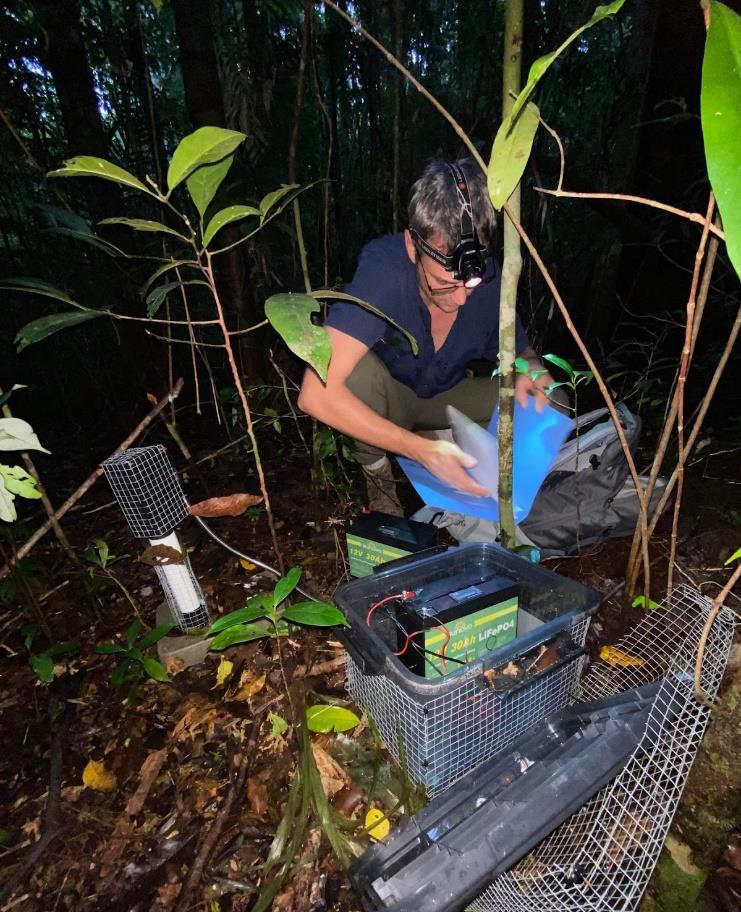Congratulations to Jordy Groffen and Roy Farman, each a recipient of the 2023 Ric Nattrass Research Grant! Jordy is a PhD student at James Cook University, and Roy is a PhD student at the University of New South Wales. Here is a summary of their work, in their own words.

Roy’s research will aim to use the Quaternary fossil record of Queensland to explore the biogeographic ranges of fossil frogs and compare those ranges to living frog species today. Additionally, he aims to to compare the fossil frog response to climatic change events compared to living frogs.
Roy says:
I intend on using my taxonomic guide of Australian frog ilia, as well as Micro–CT scans and geometric morphometrics to identify fossil frogs from Queensland and then compare the biogeography of extant and fossil frogs from Queensland fossil deposits. My project will benefit frogs in QLD by increasing our understanding of palaeobiogeographical patterns, understanding of skeletal elements among Australian frogs, the evolution of Australian frogs and their relationship between other species, as well as increasing our understanding of the types of frogs present in Queensland during the Tertiary and Quaternary periods.”
Jordy’s research will focus on the Nursery frogs (Cophixalus & Austrochaperina), which are terrestrial breeders with ‘direct development’ — eggs are laid in moist leaf-litter and are attended through development by a male frog. As eggs laid on land are predicted to be at risk of desiccation from higher temperatures and lower moisture, predicted from a changing climate.
Jordy says:
Breeding biology of these species is very poorly known. I will study parental care across Cophixalus species, under varied environmental conditions in the field (low elevation, upland areas, heatwaves, drought), to uncover the details of nest choice and parental care.

This will involve using non-invasive small cameras and data loggers in natural and artificial nesting sites in the rainforest. This will determine how variation in parental behaviour impacts larval survival and differs between species and microhabitats.
The research is expected to result in a detailed understanding of nursery frog breeding biology, particularly in the context of potential impacts of climate change.


